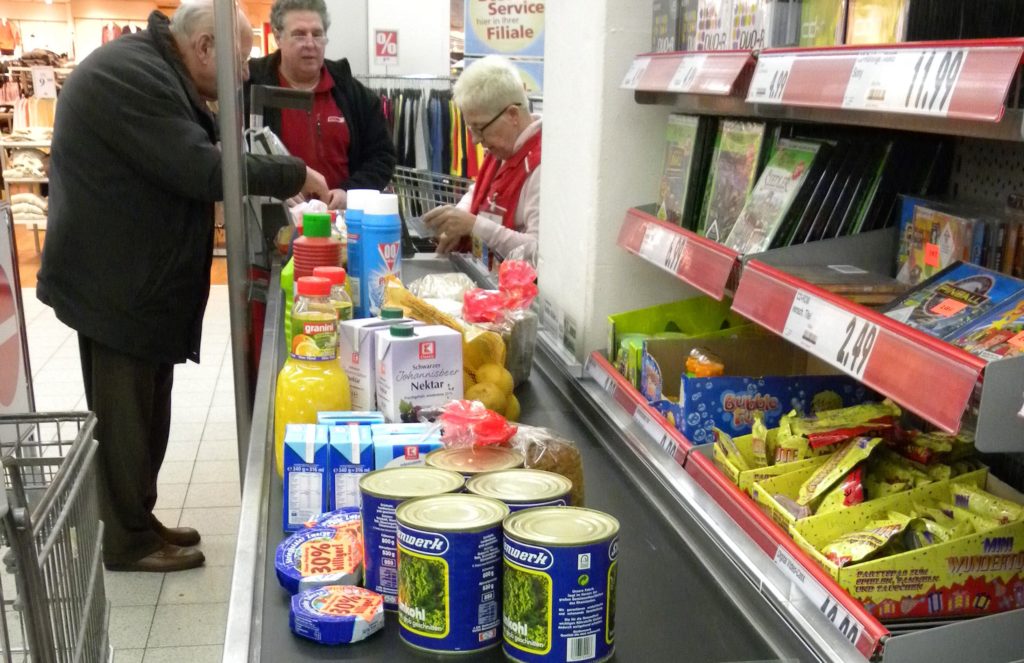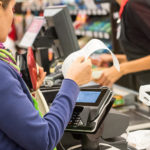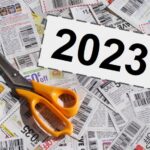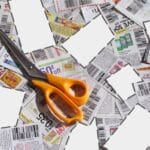
You get Catalina coupons based on what you’ve just purchased. You get “Just for U” discounts based on what you’ve purchased in the past.
What if you could combine the best of both worlds, and get surprise on-the-spot discounts for your favorite products, as you’re checking out?
That’s what IBM is proposing, in a promotional program that could give you truly personalized deals – as long as you don’t buy things you’ve bought before.
Most grocery shoppers are familiar with Catalina coupons, which print out at the register after you’ve checked out. In some cases, you might be offered coupons for products, or similar products, you’ve purchased before, based on data associated with your loyalty account. But most Catalina coupons are simply triggered by a particular purchase you made. When the cashier scans a bar code of a promoted product, out pops a Catalina coupon that you can use on your next shopping trip.
“Just for U” is Safeway and Albertsons’ personalized pricing program that offers you discounts ahead of time instead of after the fact. You may get specially promoted prices not offered to other shoppers, based on your purchase history.
IBM’s proposal, described in a newly-published U.S. patent application, would offer you discounts at the checkout based on your previous purchases – if you’re willing to go grab the item right then and there.
In its application, entitled “Dynamically Generating a Promotion at a Checkout”, IBM describes how it would work. The system would access your purchase history, and find that you “have made purchases of an item consistently” – but not during that transaction. Why didn’t you buy this time? Because “it is determined that no promotion is currently available”.
So now the system knows that you like buying a particular product – but you won’t buy it at full price. So maybe you can be tempted to buy it again, if the system offers you a deal. “Based on the aforementioned determinations,” the patent documentation continues, a “promotion is dynamically generated at the checkout for a purchase of the item… The promotion is generated for use by the customer and not any other customer.”
This system, IBM explains, could end up helping shoppers, retailers and manufacturers alike. The patent application imagines a customer who makes “multiple, regular visits” to a store and buys a particular product whenever it’s on sale. On a given day, however, the shopper “discovers that there is no discount being offered today” on their favorite product. So the disappointed customer “decides to not buy (the) item because no discount is available”.
Now the store “risks losing (the) customer as a regular customer” if the shopper chooses to seek out deals somewhere else. And the manufacturer of the product risks having a semi-loyal shopper opt for another brand instead.
So by offering a promotion on that product while the customer is checking out, the “store maintains loyalty in (the) customer”, and “increases the amount of sales… due to continued regular visits by (the) customer”.
It sounds like an intriguing idea. But in practice, there could be problems. Have you ever been behind someone in line who forgot to buy something, and holds up the works as they run back into the grocery aisles to grab it while they’re in the middle of checking out? Now imagine if everyone ahead of you at the checkout is offered a deal that’s too good to pass up, and they too drop everything to go grab the specially-priced product? And while you’re cooling your heels waiting for them to cash in on their good fortune, maybe you’ll be a little miffed that you can’t get that same price on the same item, too.
The patent application does suggest that maybe the deals that are offered could be applicable on your next order instead of right then and there. That would help keep the lines moving, but might not have the same urgency and appeal as a “now or never” offer.
Either way, there’s also the matter of training shoppers to buy only when an item is on sale. Why should you ever buy anything at full price, if you know that you might be offered a better deal as long as you hold out for one? That would be great for deal-seekers – but not something that retailers and manufacturers really want to encourage.
As more coupons and offers go digital, personalized promotions are becoming much more sophisticated than just spitting out a paper coupon after you check out, that you may or may not even want to use. Catalina itself recently began offering Just for U-like deals in the form of “targeted digital coupon offers” based on your prior purchases. And it assures brands that it’s not just teaching shoppers to wait for a deal. “By structuring offers that incentivize each shopper to purchase more of a brand than they ordinarily would, it dramatically reduces subsidization,” Catalina promises.
Whether marketers ultimately help you save money, or succeed in nudging you to spend more money, you can expect much more attention to be paid to what you’re buying and not buying as retail analytics become much more refined. As more of these personalized pricing systems are put into place, you may be able to take advantage of the increasing competition for your business. So if you don’t see a good price for your favorite product, just wait. If you’re lucky, a better deal may ultimately show up right before your eyes.
Image source: Flickr / JasonParis















